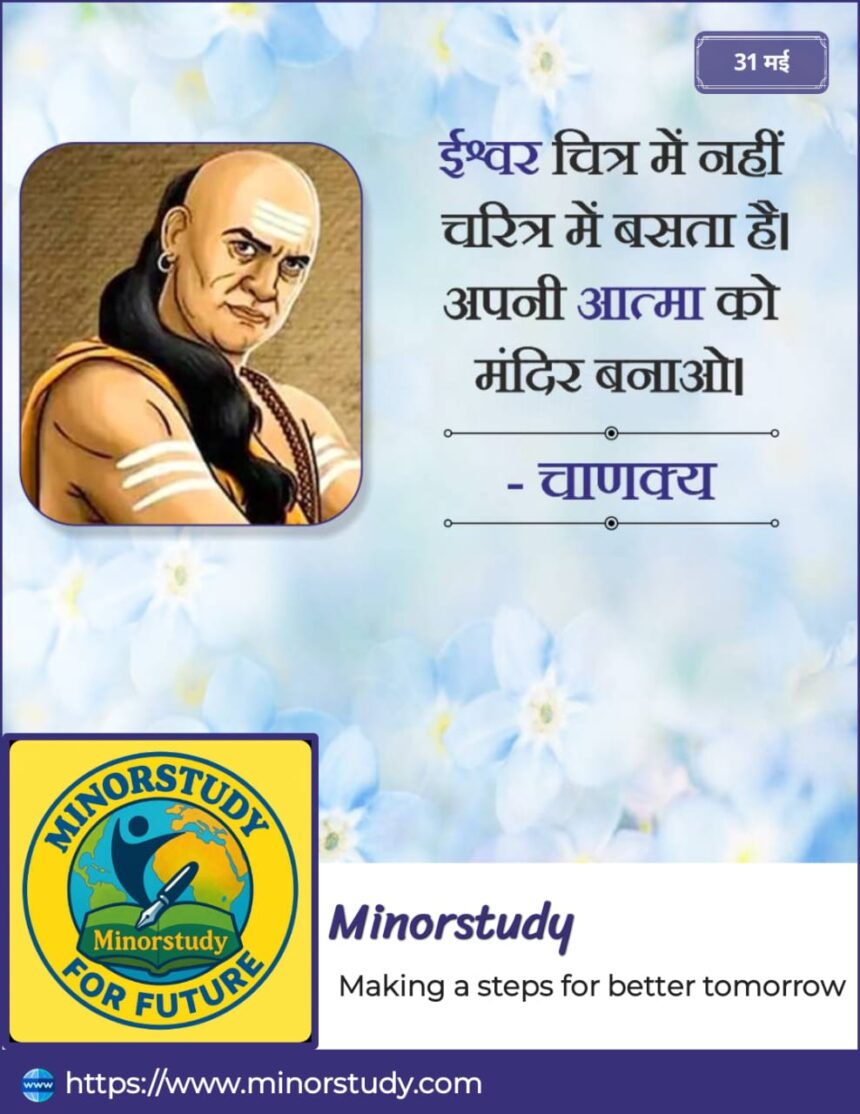Introduction: Who Was Chanakya?
Chanakya, also known as Kautilya or Vishnugupta, was an ancient Indian teacher, philosopher, economist, and political strategist. He is best remembered as the chief advisor and mentor to Chandragupta Maurya, the founder of the Maurya Empire. Chanakya’s wisdom, written in his famous treatise Arthashastra, laid the foundations of statecraft, economics, and military strategy in ancient India.
- Introduction: Who Was Chanakya?
- 🕰️ Timeline and Historical Background
- 📜 History of Chanakya
- 🔍 Fascinating Facts About Chanakya
- 🙋 Frequently Asked Questions (FAQs)
- 🎯 Significance of Chanakya’s Teachings
- 🎉 Observance & Wishing
- 💡 Important Points & Human Behavior Reflections
- 🧭 Importance in Daily Life and Society
- ❤️ Positive and Negative Reflections on Chanakya’s Legacy
- 🌍 Conclusion: Chanakya’s Timeless Wisdom
His name is synonymous with sharp intellect, ruthless pragmatism, and timeless wisdom — qualities that have fascinated people for centuries. But Chanakya was much more than just a political tactician; he was a visionary whose teachings resonate deeply with human nature and daily life even today.
🕰️ Timeline and Historical Background
| Period | Events & Milestones |
|---|---|
| 4th Century BCE | Chanakya lives and serves as advisor to Chandragupta Maurya. |
| 322 BCE | Chandragupta Maurya founds the Maurya Empire with Chanakya’s help. |
| Post 4th Century BCE | Arthashastra composed, setting guidelines for governance and economics. |
| Modern Era | Chanakya’s teachings studied for political, business, and personal wisdom. |
📜 History of Chanakya
Chanakya was born in a Brahmin family in ancient India and was a brilliant scholar of political science and economics. Legend says he studied at the ancient university of Takshashila, gaining deep knowledge of governance, diplomacy, and philosophy.
When the Nanda dynasty ruled Magadha, Chanakya sought to overthrow the corrupt king and install Chandragupta Maurya on the throne. His intelligence and strategies led to the establishment of the vast Mauryan Empire — a remarkable achievement in Indian history.
His political treatise, Arthashastra, details economic policies, administration, espionage, and military strategy. This text remains a foundational work for understanding ancient Indian polity and governance.
🔍 Fascinating Facts About Chanakya
Arthashastra contains 15 books covering economics, law, politics, and military strategy.
Chanakya is often called the “Indian Machiavelli” because of his pragmatic approach.
He emphasized realpolitik — practical and sometimes ruthless strategies over idealism.
His teachings cover personal ethics, diplomacy, and leadership.
Chanakya’s ideas on taxation, trade, and finance were revolutionary for his time.
He used intelligence networks and spies extensively for state security.
His quotes on human behavior and leadership are still popular in India and worldwide.
🙋 Frequently Asked Questions (FAQs)
Q1. Was Chanakya really a person or a legend?
Historical evidence supports Chanakya’s existence, though some stories are legendary.
Q2. What is Arthashastra?
A comprehensive ancient Indian treatise on politics, economics, and statecraft written by Chanakya.
Q3. What lessons from Chanakya apply today?
Leadership, strategic thinking, economic management, and understanding human nature.
Q4. Did Chanakya only focus on politics?
No, he wrote about ethics, personal conduct, and society as well.
Q5. Is Chanakya’s approach considered ethical today?
His pragmatism sometimes conflicts with modern ethics but is valued for realism.
🎯 Significance of Chanakya’s Teachings
Chanakya’s influence extends far beyond ancient India:
Foundation of political science and economics in the Indian context.
His work inspired rulers, leaders, and strategists across centuries.
Leadership principles in Arthashastra are applied in business and governance today.
Understanding human nature and behavior through his maxims.
Promotion of discipline, foresight, and intelligence in managing affairs.
🎉 Observance & Wishing
While Chanakya’s birthday is not widely celebrated as a festival, Chanakya Jayanti is observed by many in India, especially scholars and students of political science and economics.
Wishing example:
“May Chanakya’s wisdom guide you to lead with intelligence, strategy, and courage.”
💡 Important Points & Human Behavior Reflections
Chanakya’s teachings resonate deeply because they understand human behavior and societal dynamics:
Pragmatism over idealism: Sometimes, tough decisions are necessary for the greater good.
Knowledge is power: Education and intelligence are the greatest assets.
Preparation and foresight: Plan for uncertainties and challenges.
Leadership requires firmness and fairness: Balance discipline with empathy.
Human nature is complex: Be wary but also empathetic.
These lessons reveal Chanakya’s profound understanding of people and power.
🧭 Importance in Daily Life and Society
Chanakya’s wisdom influences various aspects of modern life:
Leadership and management: His principles are used by CEOs, politicians, and leaders.
Personal development: Emphasizes self-discipline, learning, and strategic thinking.
Governance and policy-making: Ideas on economic and political administration remain relevant.
Conflict resolution: Strategies for negotiation and diplomacy.
Cultural pride: Chanakya symbolizes India’s rich intellectual heritage.
In daily life, his maxims remind us to be prepared, ethical, and pragmatic in our decisions.
❤️ Positive and Negative Reflections on Chanakya’s Legacy
Positive:
Encourages strategic thinking and intelligence.
Advocates ethical leadership and governance.
Offers timeless wisdom on human psychology and politics.
Promotes discipline and education.
Negative:
Some strategies reflect ruthlessness and realpolitik, conflicting with idealistic ethics.
His advice sometimes endorses manipulation and deception as tools.
The harshness in some teachings may seem too pragmatic or cold.
🌍 Conclusion: Chanakya’s Timeless Wisdom
Chanakya’s life and teachings remain a treasure trove of wisdom blending philosophy, politics, and human nature. His insights into governance and leadership continue to inspire millions. More importantly, Chanakya reminds us that wisdom is not just knowledge but the art of applying it wisely and pragmatically.
His legacy teaches us to be thoughtful strategists in life, balancing ethics with pragmatism — a lesson that is as relevant today as it was over two millennia ago.








